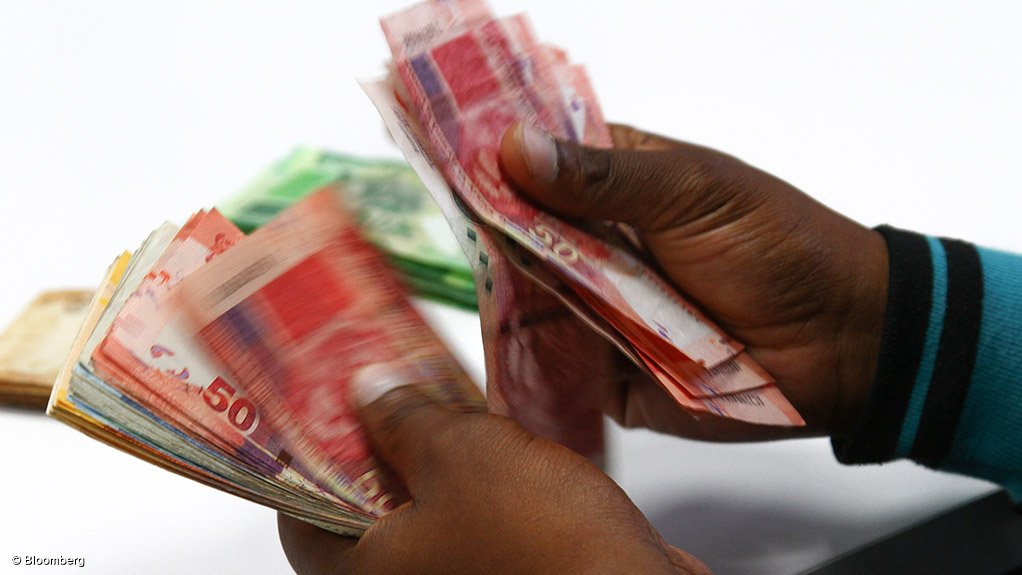The South African private equity industry expanded its total funds under management by 17% to R162.2-billion in 2013, up from R138.8-billion in 2012, the 2014 KPMG and Southern African Venture Capital and Private Equity Association (Savca) Venture Capital and Private Equity Industry Performance Survey has shown.
Over the past two years, private equity funds under management had increased by 42% or R46.1-billion.
Government investments, at R59.9-billion, made up a significant portion of the total funds under management in 2013, with the majority of these funds being managed by the Public Investment Corporation (PIC), KPMG director Warren Watkins noted.
“[As Savca] we are excited about these numbers because of the growth it signifies in the industry,” Savca CEO Erika van der Merwe commented.
Of the R27.3-billion private equity third-party funds raised during the year, R22.1-billion was raised by the PIC, which managed the Government Employees Pension Fund (GEPF).
“The success with which our fund managers have raised capital just shows, locally, pension funds are excited by the asset class and what it can bring. We are excited that there is recognition of the returns boost that [private equity] offers to the institutional portfolios,” Van der Merwe said.
She added that almost 60% of the R46.1-billion raised over the past two years could be attributed to the GEPF.
“In general, we expect to see more activity by pension funds in the next few years. This is because these investors make decisions based on both investment returns and societal impacts. They are particularly interested in the high employment and development characteristics that tend to accompany private equity investment,” she stated.
Of the R27.3-billion in funds raised in 2013, the portion focused on early-stage investments, also known as venture capital, was up significantly, from R1.4-billion in 2012, to R8.2-billion in 2013.
Further, of the R162.2-billion in funds under management, undrawn capital amounted to R58.6-billion. Of these undrawn funds, 47.1%, or R27.6-billion, sat with fund managers that raised third-party capital, 38.9%, or R22.8-billion, with government entities and 10.8%, or R6.3-billion, with banks and investment holding companies.
Meanwhile, deal flow also increased noticeably in 2013, with R17.5-billion of investments done in 2013, up from R9.9-billion in 2012. Of the 2013 figure, R10.2-billion was attributed to new investments, while follow-on investment amounted to R7.2-billion.
The overall average investment deal size increased from R48.9-million in 2012 to R72.6-million during 2013.
South Africa’s private equity investment as a percentage of gross domestic product (GDP) was 0.13%, which was higher than that of China, at 0.07%, and Russia, at 0.01%, in line with Brazil, at 0.13%, and slightly behind India at 0.2%.
However, South Africa’s private equity industry was still well behind that of more established markets such as the US and the UK where private equity investment made up 1.02% and 0.89% of GDP respectively.
“This proves that we have a good market and great potential, but we do have the [opportunity] to grow the industry to the level of the more mature markets,” Watkins said.
He also noted that private equity remained an attractive asset class compared with publicly listed entities.
“The ten-year internal rate of return after fees on private equity for 2013 was 22.1%, very telling when contrasted with the JSE’s 19.6%,” he said.
Meanwhile, infrastructure continued to lead as the preferred sector for investment during 2013 at 48.4%, up 20.9% from the 2012 figures.
“Infrastructural investment can be rewarding for fund managers and investors. It delivers pleasing long-term returns and meets mandates that prioritise sustainability, while at the same time playing a key role in the development of South Africa,” Watkins explained.
During 2013, the number of black economic-empowerment (BEE) investments also increased to 140, from 108 previously. The average BEE deal size in 2013 was R96.43-million, as opposed to R70.37-million in 2012.
“These levels of activity, when compared to activity in South Africa, reflect that private equity BEE investments are an important element to the transformation of the South African economy,” Van der Merwe said.
The cost of investment into black-influenced entities, with an element of black ownership of 5% or greater, in 2013, was R13.5-billion, an increase of 77.6% from 2012 levels.
EMAIL THIS ARTICLE SAVE THIS ARTICLE
To subscribe email subscriptions@creamermedia.co.za or click here
To advertise email advertising@creamermedia.co.za or click here











